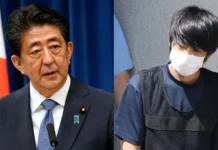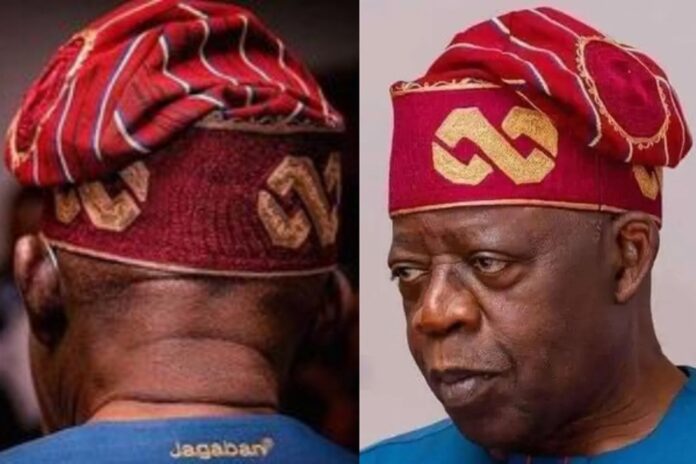Olalekan Adetayo
A public function was recently held in Abuja, the seat of power. The event was attended by top government officials, including President Bola Tinubu. One prominent feature of that event that stole the shine from its primary purpose was the sea of government officials who appeared in uniform caps emblazoned with the President’s insignia—not Nigeria’s coat of arms, not their ministry’s logo, but Tinubu’s personal emblem.
This kind of display—which even leaders of the National Assembly, who are meant to serve as oversight on the executive, now engage in—has become common in official settings since Tinubu became President. You cannot miss the branded cap, which now appears in various designs, wherever government officials gather. Among party loyalists, the trend is even more pronounced. The question, however, is: at what point does the symbolism of loyalty cross into the theatre of sycophancy?
Interestingly, this scenario did not start with Tinubu. As the scriptures say, “as it was in the beginning, so it is now.” What I can’t say for sure is whether “so shall it be, world without end.”
As a journalist who had the rare privilege of reporting from the Presidential Villa, Abuja, during most of former President Goodluck Jonathan’s administration and the early years of the late President Muhammadu Buhari’s government, I know that this sycophantic display of loyalty is not new.
Over eight years ago, on March 25, 2017, I published an article titled “When the President’s Men Show Loyalty in Dress Style” in my now-rested column, Aso Rock Lens. That column focused on everyday news-behind-the-news events at the seat of power that rarely made the headlines.
In the referenced piece, I noted how aides of Buhari and then Vice President Yemi Osinbajo, along with other appointees, were falling over themselves to show loyalty. For Osinbajo, I wrote how the cap popularised by the late sage, Chief Obafemi Awolowo, had become his trademark. Many of his aides adopted it as their unofficial uniform, to the extent that one could identify Osinbajo’s associates from a distance just by their headgear.
Buhari, I also wrote, popularised a distinct way of dressing—a white shirt under a long kaftan, with the collar showing around the neck. That style, known as “Sai Baba,” became a visual stamp of loyalty in the Villa during his tenure. Many appointees, and even other workers, dressed that way to show allegiance. Some went further, wearing lapel pins—either gold or green and white—bearing Buhari’s portrait. All those displays vanished immediately Tinubu took over.
It was the same during Jonathan’s era. The dress code that opened doors then was the traditional Niger Delta outfit, later christened “Jonathan,” complete with a bowler hat. After Jonathan lost re-election and Buhari assumed office, the Villa’s dress code shifted overnight.
This trend repeats itself at the state level. When Senator Ibikunle Amosun was Ogun State governor, his appointees—including commissioners—often wore long traditional caps in his trademark style. Today, wearing that same cap in Government House, Abeokuta, would be political suicide. In Benue State at the time, then-governor Samuel Ortom popularised a cap featuring all the state’s ethnic group colours; today, hardly anyone wears that “cap of many colours.” In Imo State, appointees once wore sashes around their necks because that was then-governor Rochas Okorocha’s style. That, too, is now extinct in state politics.
Nigeria has indeed endured a long history of personalised power and the conflation of state identity with that of its individual leaders. In African—especially Nigerian—political tradition, loyalty is more often performed than proven. Political actors frequently fail to identify the fine distinction between loyalty and sycophancy—excessive flattery for personal or political gain.
This troubling scenario thrives in Nigeria’s patronage politics, where access to power is strongly influenced by demonstrations of fidelity. It is ironic how symbolic gestures—like wearing a particular cap—can come to replace genuine service or competence. In a system where silence is safer than dissent, the loudest cheerleaders are often the most secure.
Recently, Edo State Governor, Monday Okpebholo, was unequivocal in warning his cabinet members that non-compliance with his dress code would not be tolerated: “I will not forgive any commissioner who is not wearing this cap. In our Exco meetings, if you are not wearing a suit and you come without this Asiwaju cap, you will go back,” he declared.
The state chairman of the All Progressives Congress, Jarrett Tenebe, reinforced the directive by announcing that any commissioner barred from the State Executive Council meeting for failing to wear the “Asiwaju cap” would also be suspended from the party. What this means is that, as a commissioner, competence is no longer as important as keeping one’s wardrobe stocked with Tinubu’s caps—wear three a day if you wish, and you can do no wrong.
In reality, what positive impact can this approach have on governance? Clearly, such displays erode the dignity of institutions: ministries lose neutrality, and civil servants morph into campaigners. Meritocracy and public trust also suffer, sending the wrong message to ordinary Nigerians who are struggling. When officials “wear loyalty on their heads,” citizens will rightly question whether governance is now subordinate to personality.
This is not to encourage disloyalty—I strongly believe that respect for political leaders is normal. But true loyalty should be expressed through performance, not propaganda. Political branding at official functions blurs the line between state and party, unlike other countries, where public servants are loyal to institutions, not individuals.
As a matter of urgency, we must return to institutional discipline—let state symbols, rather than political logos, dominate at public events. The President and other leaders should discourage such excesses; genuine leadership is never threatened by honest subordinates.
Political leaders should also remember that this public display of loyalty has an expiration date. If in doubt, they should consult Jonathan and those who preceded them. A time will come when, even if Tinubu’s cap is distributed for free, nobody will be inclined to wear it—just as Abdullahi Ganduje once discarded Rabiu Kwankwaso’s “Kwankwasiya” red cap for political reasons. The same people shouting “Hallelujah” today will, without hesitation, cry “Crucify him” tomorrow.
A nation cannot build strong institutions when its strongest devotion is to the man, not the mandate.
Punch






























































